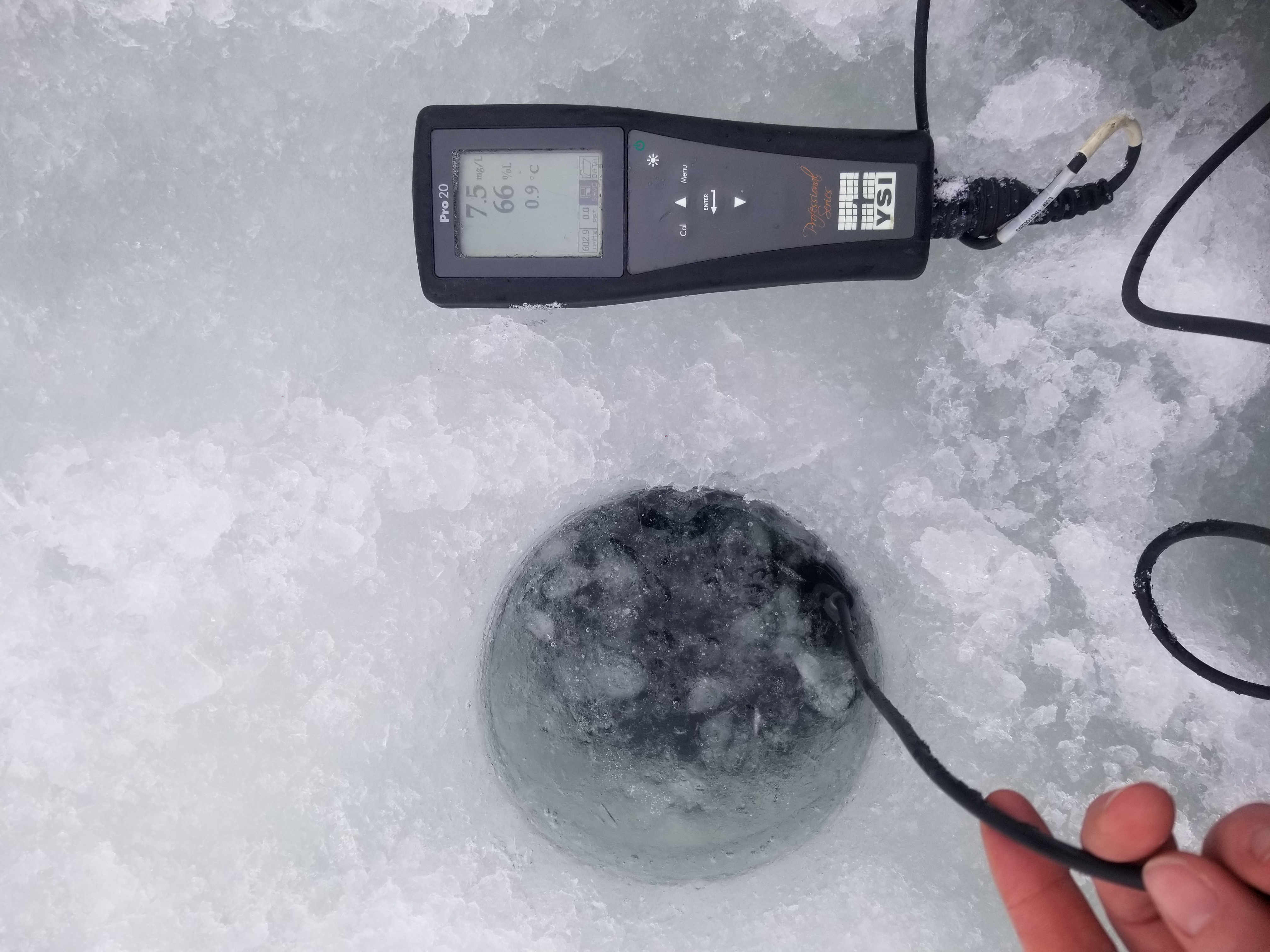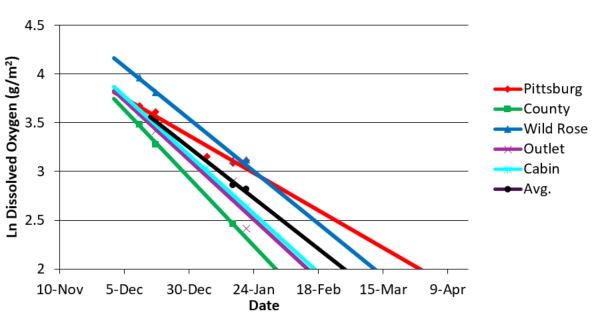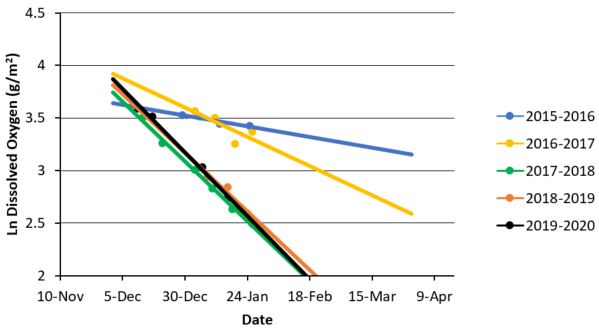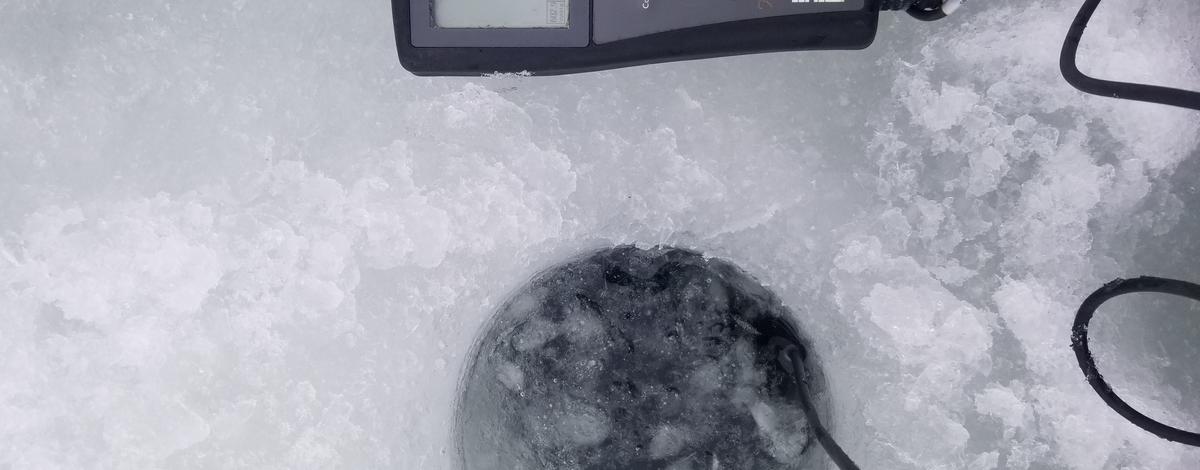Fisheries biologists have been out weekly since December 2019 monitoring oxygen levels below the ice on Henrys Lake. Dissolved oxygen is crucial to the growth and survival of aquatic animals. Current oxygen levels in the lake are favorable for trout growth and reproduction.

When oxygen levels decline, a fish becomes stressed and its body cannot perform to its full potential. As such, the more oxygen available in the water column the better. Each winter Fish and Game tracks oxygen levels under the ice by measuring the amount of dissolved oxygen throughout the water column at multiple locations on Henrys Lake.

As annual Yellowstone Cutthroat Trout spawning activities approach, biologists make sure the trout in Henrys Lake have enough oxygen. A dissolved oxygen depletion model is used to predict the likelihood of the Henrys Lake environment to reach the critical threshold for fish survival. The critical threshold for Henrys Lake is considered to be 2.3 g/m2.
Current estimates are shown in the chart below (Figure 1). The average oxygen decline across all sampling sites shows that the lake is currently favorable to trout growth and survival, only reaching concerning levels around mid-February. In the spring, beginning around April 1st, snow melt begins to bring large quantities of highly oxygenated water into the lake. Department staff will continue to monitor the lake through March.

The graph below shows the oxygen depletion estimated at the cabin sampling site (Figure 2). The current trend for 2019-2020 mirrors trends seen over the last two winters. "It is quite promising that we are tracking oxygen levels as high as last winter," says Fisheries Biologist Jenn Vincent. "These levels preceded some stellar fishing on the lake this past season."

Figure 2. Henrys Lake dissolved oxygen depletion estimates under the ice for the last 5 winters taken at the Cabin sampling site.

